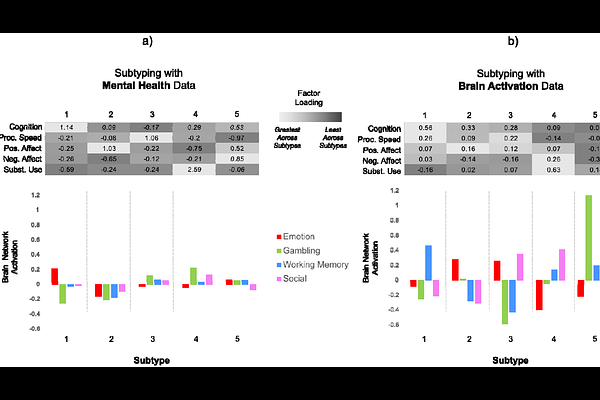Cognition-centric brain activity across diverse imaging tasks constrains the representation of mental health in task-evoked brain function

Cognition-centric brain activity across diverse imaging tasks constrains the representation of mental health in task-evoked brain function
Korponay, C.; Cohen-Gilbert, J. E.; Kumar, P.; Harnett, N. G.; Medina, A. A.; Cheng, Y.; Forester, B. P.; Ressler, K. J.; Demsar, J.; Frederick, B. B.; Beckmann, C. F.; Harper, D. G.; Nickerson, L. D.
AbstractIdentifying individual differences in brain activity that reflect variation in domains of mental health - including those in the Research Domain Criteria (RDoC) framework - remains a core challenge in neuropsychiatry. Here, we cross-analyzed mental health and brain function profiles in hundreds of individuals using factor analysis of 87 neurocognitive/psychiatric assessments and tensor independent component analysis of functional magnetic resonance imaging (fMRI) data acquired during task and movie-watching paradigms with putative mental health relevance. Across 77 brain network variants evoked across five paradigms, univariate and multivariate network activity differences predominantly reflected and predicted cognition, weakly indexing other mental health domains despite their similar reliability and interindividual variability. Normative mental health variation was not reflected in comparatively homogeneous evoked brain activity, and clustering subjects by brain function versus mental health produced discordant subtypes. Brain activity evoked by common fMRI paradigms may contain insufficient non-cognitive information to differentiate mental health in the general population.